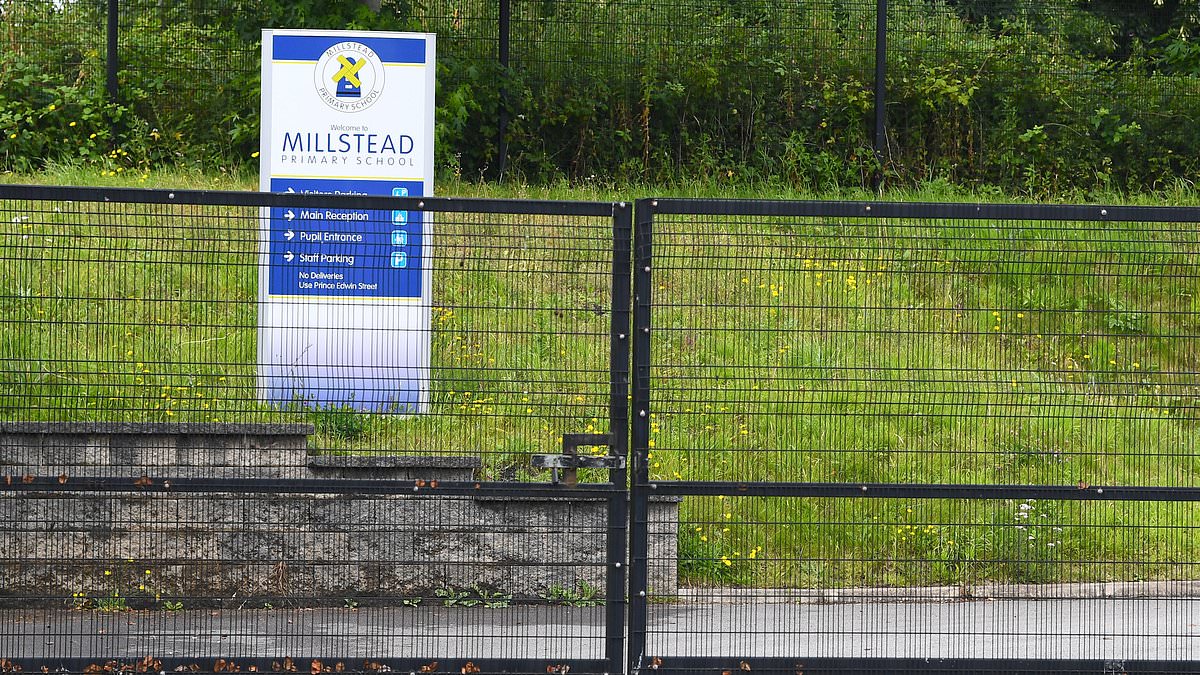Two children who attended a Liverpool primary school which is battling an outbreak of an infectious stomach bug have died.
The pair, believed to be just five and six years old, had been pupils at Millstead Primary School, in Everton, Merseyside.
Their headteacher said everyone connected with the school was ‘devastated’ by their deaths, and that they had ‘filled their classes with joy’.
The school had been dealing with an outbreak of giardiasis, an infection caused by a parasite which causes diarrhoea, stomach cramps, flatulence and bloating.
It is generally not considered to be a serious risk to health and can be treated easily with antibiotics.
The UK Health Security Agency (UKHSA) had been managing the outbreak of the illness and said that although the reason for their deaths has not been confirmed as of yet, it is ‘unlikely’ to be due to the bug.
A spokesperson for the UKHSA said: ‘UK Health Security Agency are aware of the sad deaths of two children who attend Millstead Primary School and our thoughts are with the family, friends and school community.
‘The deaths are unlikely to be due to giardia. Giardia usually causes a self-limiting gastrointestinal illness which can spread easily in households and school settings.’
In a statement Michelle Beard, who is the headteacher of the special needs school, said the children would be ‘forever in our hearts’.
She said: ‘The entire Millstead School community is devastated to have learned of the sad recent passing of two of our younger children.
‘We have sent our sincerest condolences to both of their families. Both children filled their classes with joy during their time with us, and they will forever be in our hearts.
‘We are working closely with our families, staff and pupils to support them as we come to terms with this terribly sad news.’
The outbreak of giardia, which is caused by the parasite giardia lamblia, was first reported by the Liverpool Echo last month.
Since then health officials have put preventative measures in place to stop the outbreak, including closing the school entirely for one week in a bid to stop it spreading.
Emma Savage, consultant in health protection for the UKHSA Cheshire and Merseyside Health Protection Team, said: ‘Investigations are ongoing, and we have provided information and advice to the school and parents. Public health measures have been put in place to help prevent further cases.’
Giardiasis can be spread by direct contact with infected people or animals, or from swallowing contaminated water, food or drinks. Once treated symptoms should stop in about a week but can sometimes last longer.
The bug can be prevented by washing hands with soap and water, especially after using the toilet and before handling and eating food. Children should be encouraged to wash their hands regularly.
